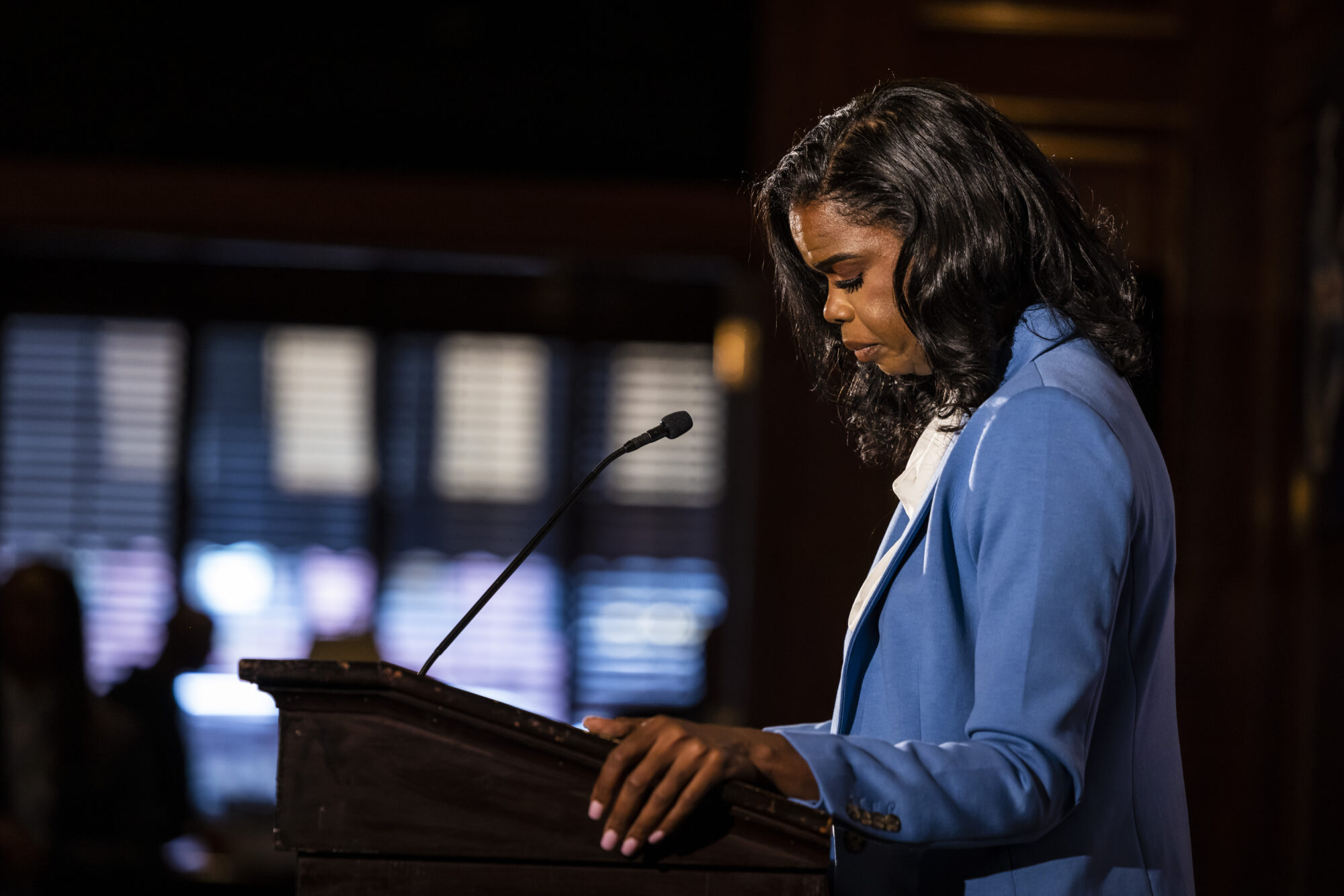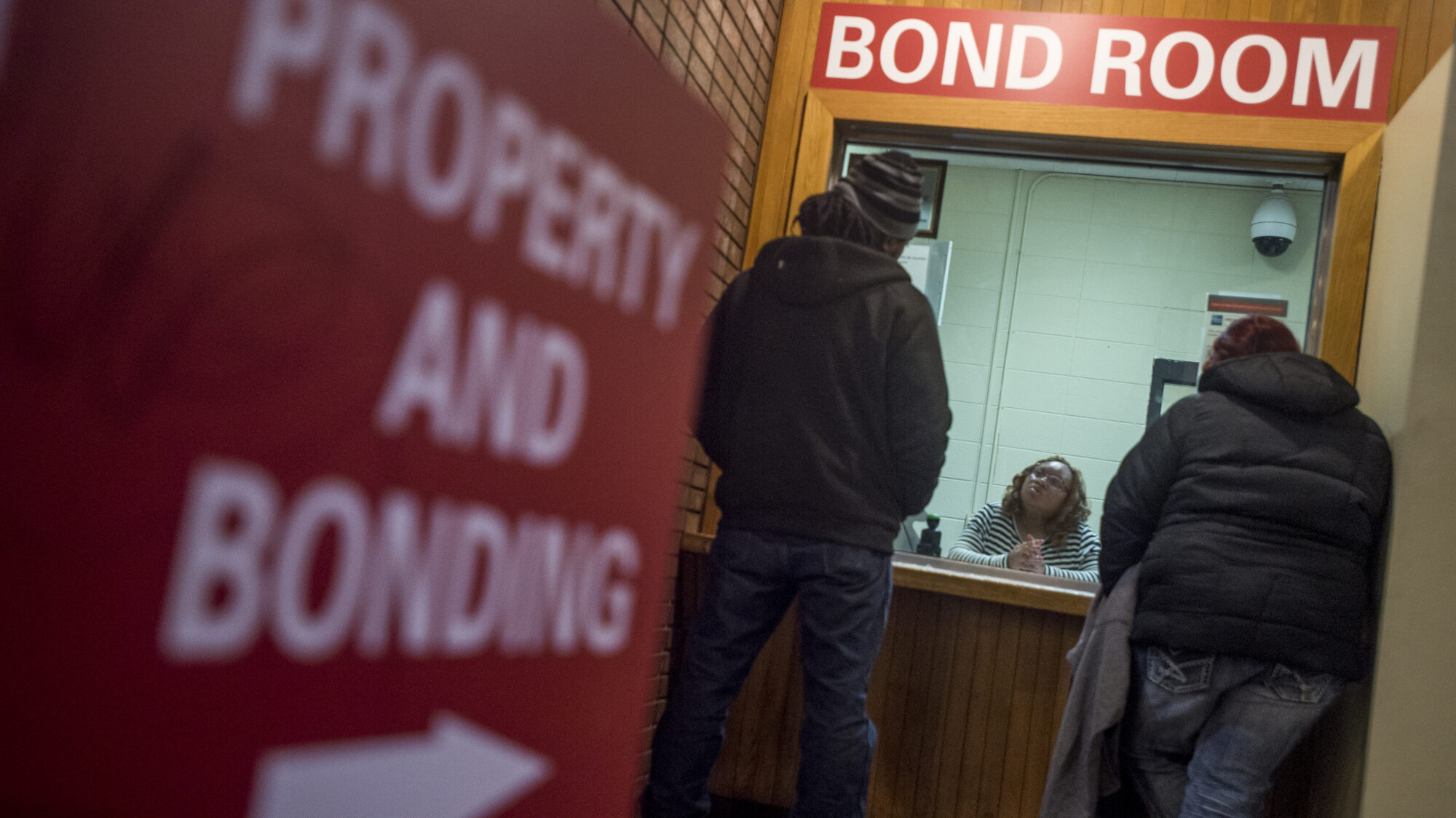Illinois Ended Cash Bail. Now Reformers Want More Support for People on Pretrial Release.
Proposed legislation would expand community-based programs for people released from jail to improve their odds of success. Supporters call it a critical next step after abolishing bail.
| May 1, 2024
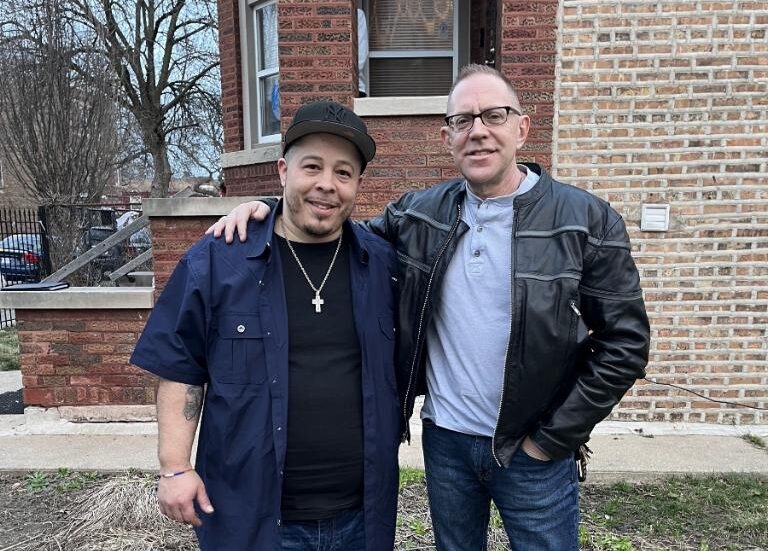
Editor’s note: Illinois adopted the legislation described in this article, the Pretrial Success Act, in late May, in the form of a $3.5 million pilot program that will launch in January 2025.
After Chicago police arrested Luis Gonzalez on an illegal gun possession charge in 2022, getting out of jail was his immediate concern. He didn’t have $200 to post bail, but being stuck in jail threatened to cost him his job at a West Side gas station and his ability to care for his four children.
“The first thing in my head was my kids,” Gonzalez said. “I would’ve lost my job. I probably would have lost my kids.”
His first call from jail was to the Lawndale Christian Legal Center, a neighborhood group where Gonzalez had often referred others to get help when they were in a jam. The organization paid for Gonzalez’s release and got him a lawyer for his case. He went home to his kids and soon returned to work at the gas station.
But even though he was out of jail, Gonzalez felt like he’d overcome one hurdle just to end up back in the exact same situation that landed him in trouble in the first place. Prior to his arrest, Gonzalez dealt constantly with dangerous situations during his evening shifts at the gas station, often breaking up fights between belligerent customers. He says that he’s twice been robbed at gunpoint during his shift.
Gonzalez, who lived with his kids just a few blocks from the gas station, says he felt he needed to get a gun for protection after someone started shooting at him one night as he walked home with groceries in hand. He says that breaking up fights at the station and calling the police on troublemakers had made him a target. Gonzalez walked away from the shooting unharmed but three of the bullets hit his car parked outside his home.
“I was in total fear. I couldn’t quit my job, and this was my only income to pay rent and support my kids,” Gonzalez said. “Even after getting shot in my house, I couldn’t afford to move. I went to get a weapon, not to be a menace. I wasn’t out here gangbanging, I was just trying to make a living for my family.”
Within a month of Gonzalez acquiring the gun, police arrested him after they found it during a traffic stop. Getting out of jail helped prevent his life from spinning even further out of control, but he says it was the support he received after his release that dealt him a new hand in life.
Lawndale Christian Legal Center, the group that bailed him out, brought him into a program, Community Release with Support, designed to address the underlying needs of people on pretrial release by linking them with services for housing, addiction treatment, job training and transportation. Since housing was his most urgent issue, they enrolled Gonzalez in a program funded by the Chicago Low Income Housing Trust Fund so he could move his family to a place they felt safe. The program connected Gonzalez with a landlord in their network and helped him pay rent so that no more than 30 percent of his income was going to housing.
Gonzalez says those resources allowed him to move his family out of a two-bedroom basement unit and into a four-bedroom home with a yard where he likes to barbecue for the kids when the weather is nice. His new neighborhood is far enough from the gas station that problems at work are unlikely to follow him home anymore.
“If I didn’t have these resources, I would’ve been still stuck in the same apartment, the same area,” Gonzalez said. “I would’ve probably still been in jail. I would’ve, for my own safety, ended up catching another [gun] case just to make it back and forth to work.”
The program that helped Gonzalez get out of the situation that led to his arrest in the first place was a local pilot, but advocates for criminal justice reform are now asking Illinois lawmakers to expand access to these types of community-based programs across the state.
Many of the same advocates who successfully pushed for the state to abolish cash bail last year are now hoping to build on that reform with The Pretrial Success Act, a bill filed this legislative session that would direct $15 million to community organizations around the state to provide voluntary services to people awaiting trial. The legislation would offer grants of up to $500,000 for these organizations to develop and scale up programs that offer everything from clinical behavioral and health services to transportation, child care, and case management for people on pretrial release in accordance with their needs, in order to improve their odds of success.
“The idea is to get to the root causes,” said Rebecca Levin, Vice President of Policy at Treatment Alternatives for Safe Communities (TASC), an organization that provides community-based treatment and recovery support for people with mental illness and substance use disorders.
The bill, introduced in February by State Senator Elgie Sims and State Representative Maurice West, has been widely supported by social service agencies across the state. Supporters say that it builds on prior Illinois grant programs aimed at improving public safety using community investment—such as the 2021 Reimagine Public Safety Act that established a public health approach to gun violence prevention and the Restore, Reinvest, Renew program launched in 2019 that directs a portion of cannabis tax revenue into disinvested communities. This year’s Pretrial Success Act would be the first to specifically target services for pretrial defendants released from jail. The bill is currently being debated in the Senate Health and Human Services Committee and the House Public Safety Committee.
Levin, whose organization was a key partner in drafting reforms to strengthen services for people released from jail, says the bill is built on a belief that mental health and substance use problems should not be addressed through the criminal legal system. Incarceration has historically been used as a catchall solution for addiction and mental illness, even though incarcerated people rarely receive the necessary care for those conditions, compounding behavioral health problems and magnifying the risk of overdose and suicide after release, Levin said.
“The behavioral health issues and violence have the same root cause, and it’s really the cycle of trauma,” Levin said. “Folks who are traumatized often look to cope through substance use. Folks who are traumatized may experience mental illness. Investing in these behavioral services is about interrupting this cycle of violence and trauma.”
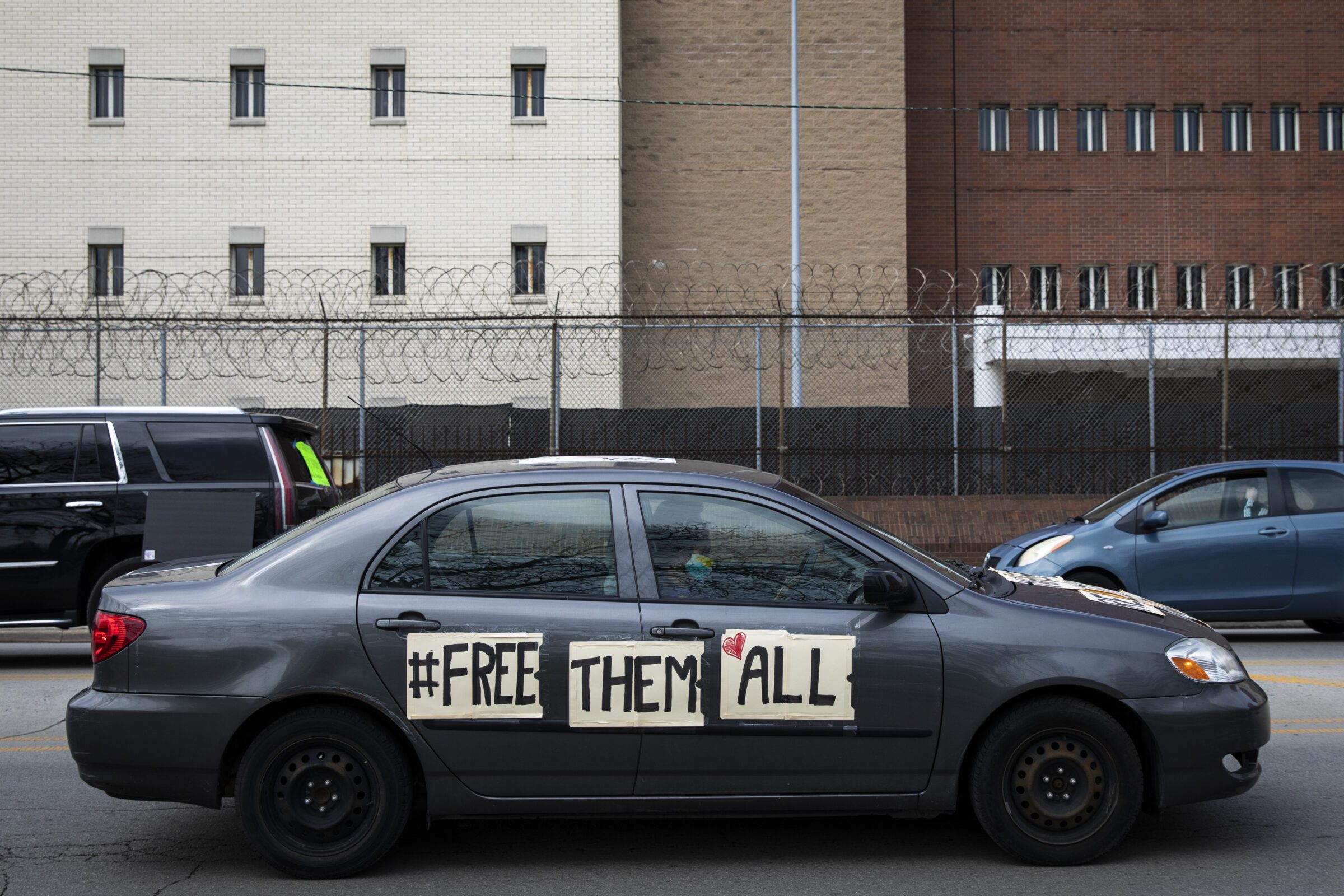
Levin calls the Pretrial Success Act a critical next step after the state abolished cash bail last year. Lawmakers passed the landmark reform, known as the Pretrial Fairness Act, in 2021 to get rid of cash bail and make it so that a defendant’s release no longer depends on their ability to pay bail, but rather only if a judge determines that they are either a flight risk or threat to public safety. After overcoming legal challenges by Illinois sheriffs and prosecutors, the law finally took effect last September.
Advocates in the Illinois Network for Pretrial Justice, a partnership between dozens of organizations that worked to develop the Pretrial Fairness Act and lobby for it in Springfield, say that ending cash bail was only the starting point for reshaping the criminal legal system’s role in keeping people safe.
Under the old system, cash bail was used as collateral to ensure people who were deemed by a judge to be safe to release would attend court dates and wouldn’t reoffend. But in effect, advocates say, jailing someone solely due to their inability to pay disrupts critical needs in their life like employment, healthcare, childcare, or any educational path they might be on. Instead of making communities safer, they say mass incarceration based on people’s inability to pay bail only created more financial desperation and broken families, fueling the kind of instability in poor communities that can lead to crime.
Since the Pretrial Fairness Act took effect last fall, more people throughout the state are now awaiting trial at home with their families rather than behind bars. In Cook County alone, the jail population has declined by 13 percent since cash bail was abolished, according to data from the Sheriff’s Office. Advocates for this year’s pretrial reform bill say that boosting wraparound services for people awaiting trial will not only enhance public safety but help reinvest resources in communities that have long been harmed by mass incarceration.
“We have communities that have been disinvested for generations. Ending the extraction of wealth from communities through money bonds was an essential first step, but we have to invest in those communities as well,” Levin said. “A piece of that is building up support and services that will allow people to be on a positive path while they are waiting for trial. Ultimately the goal is to reduce involvement in the criminal legal system.”
Gonzalez made it to every court date, thanks to phone and text reminders the Community Release with Support staff sent him. Since Gonzalez lost his car due to the arrest, the program also supplied him with transportation anytime he needed help getting to court or coming home from work. Eventually, he accepted a plea that resulted in no jail time.
“I took full responsibility for having the weapon. Sometimes we make mistakes. Sometimes we get caught up doing things that we shouldn’t. But that’s not the end,” Gonzalez said. “Catching this case was a bad thing, but for me it was my blessing in life. They opened up a lot of doors for me.”
Matthew McFarland, vice president of Lawndale Christian Legal Center and former director of the program that helped Gonzalez after his release, says over 3,000 people have participated in the program so far. The neighborhood legal center launched Community Release with Support at the end of 2021 as a two-year pilot program with the Bail Project, a national nonprofit that pays bail for those who can’t afford it and donated $2.9 million for the program. In anticipation of the bond reform law that would soon take effect, McFarland says the project was designed to be a scalable and replicable model for using community investments and social services as a replacement for cash bail.
McFarland says the project has been an overwhelming success: According to the organization’s data, participants made it to 98 percent of their court dates.
“Most people plan to meet their court dates. But there’s last minute things that happen like childcare, or issues with their rides. That’s why they don’t make it to court,” McFarland said. “When people are able to fight their case from a position of freedom, they can also address the things dragging them into the criminal legal system in the first place, and they tend to have better outcomes.”
Participants also tend to have favorable outcomes in their cases, McFarland said. Over half of the cases that went to trial ended in a dismissal, and the vast majority that ended in conviction resulted in no additional jail time.
McFarland says that in addition to helping people make court dates, the program also connected participants to support and social services that helped them make improvements in their lives—like furthering their education by completing their GED or enrolling in trade school, or help navigating child custody issues. Community Release with Support linked over 1,000 participants with employment services, while over 740 were connected to education or training programs. More than 250 clients were connected to housing services, including at least 50 families who enrolled in the same program that helped Gonzalez move his children into a safer home.
“These things matter for judges,” McFarland said. “Nobody wants to lock somebody up who is succeeding in the community.
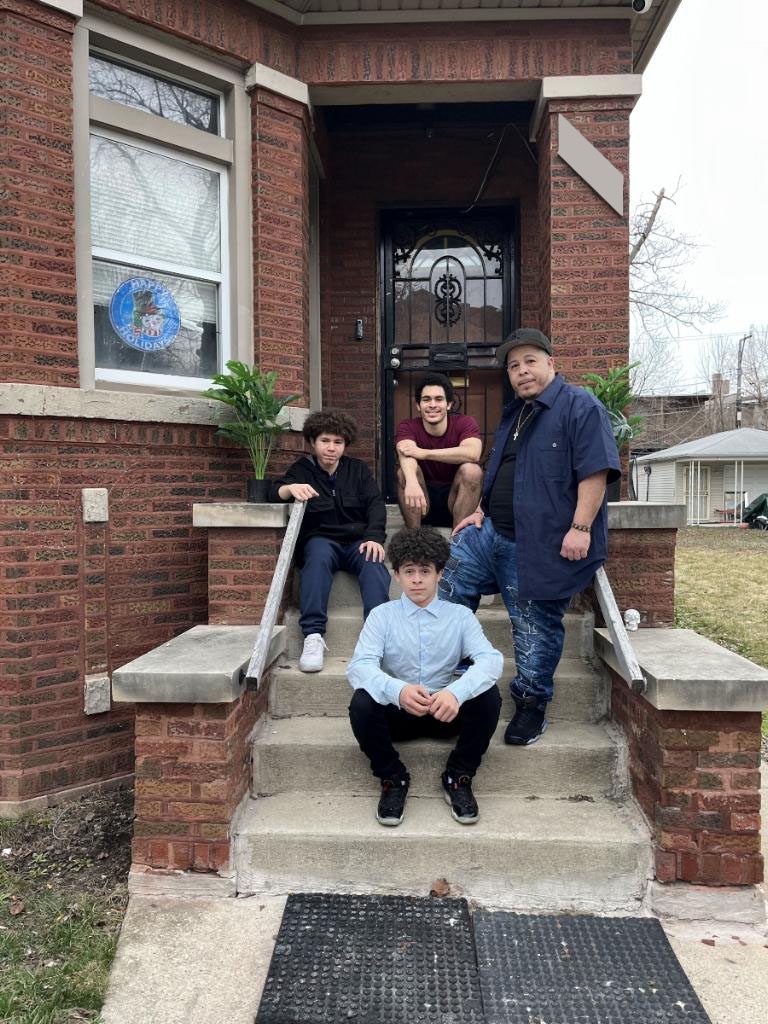
Advocates for reform say funding from this year’s Pretrial Success Act would help scale up such wraparound support programs across the state. The legislation directs the Illinois Department of Human Services, which would allocate the grants, to spread the money among organizations offering programs in each judicial circuit area. The law would also create local advisory councils to recommend how the grants should be allocated in each service area, which must include people with personal experience of being charged with a felony in the state.
Levin with Treatment Alternatives for Safe Communities says her organization, which already operates programs across the state, would be able to expand existing case management services already offered for people on probation and cater them to the specialized needs of people released from jail before trial. Lauren Wright, executive director of Illinois Partners for Human Service, says the legislation could help grow social services outside of the Chicago area, where services are already sparse and may not have the capacity to meet the growing needs of people on pretrial release.
Transportation challenges are also magnified in rural areas, where there are few service providers separated by long distances with limited public transit. Wright says it is also tougher downstate to recruit and retain staff members to provide the necessary trauma-informed services for people on pretrial release.
“There are unique issues that individuals and human service providers face downstate,” Wright said. “Organizations are really struggling already to meet the needs of community members.”
McFarland knows personally how helping someone deal with the underlying issues that led to their arrest can allow a person to set a new course in life. He’d cycled in and out of the criminal legal system for decades, and by his final arrest in 2015 he had a rap sheet 60 pages long that he says “reads like a horror story of somebody who is battling a horrible heroin and crack cocaine addiction.”
McFarland says his own turning point came when, rather than incarcerating him, the court handed him off to a community-based treatment provider where he could recover from his addiction.
“I was able to get those root causes addressed,” McFarland said. “Amazing things happened. I started making it back to court, and I had the judge cheering me on. I completed treatment, and I was sober. I got a job. I got my driver’s license. The trajectory of my life changed.”
Sign up and stay up-to-date
Support us
Bolts is a non-profit newsroom that relies on donations, and it takes resources to produce this work. If you appreciate our value, become a monthly donor or make a contribution.


